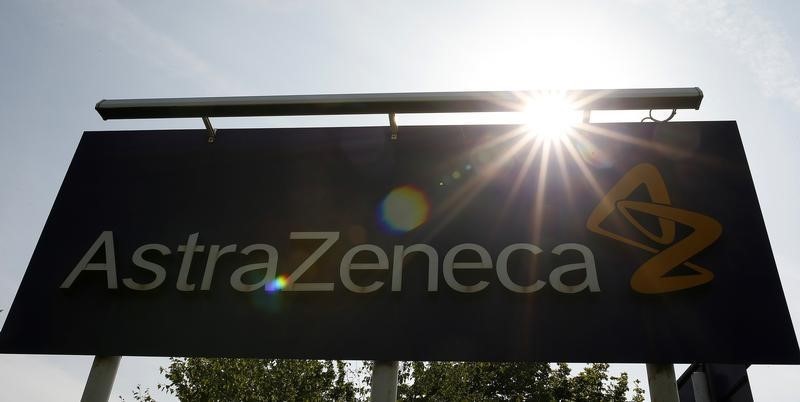By Ben Hirschler
LONDON (Reuters) - AstraZeneca (L:AZN) has sharpened its focus on cancer drugs with two new deals as it looks beyond a hit to sales and profits from the launch of cheap copies of its popular stomach acid pill Nexium in the vital U.S. market.
The drugmaker, which saw off a $118 billion bid by Pfizer (N:PFE) last year, said on Friday its sales fell by a slightly less than expected 6 percent to $6.06 billion in the first quarter, hurt by Nexium generics and the strong dollar, its reporting currency.
Core earnings per share, which exclude certain items, fell 7 percent but came in 1 cent above forecasts at $1.08.
The results were helped by the partial sell-off of a number of drugs, leaving some investors sceptical and the shares fell 2 percent by 0805 GMT (0905 BST).
Chief Executive Pascal Soriot said its new cancer alliance with Celgene (O:CELG) would maximise the potential of immune system-boosting drugs in blood cancers and a tie-up with Innate Pharma (PA:IPH) would further strengthen immuno-oncology.
AstraZeneca will get an upfront payment of $450 million from Celgene by giving it the right to work with MEDI4736, a so-called anti-PD-L1 immune system medicine, in blood cancers. Innate will receive an initial $250 million from AstraZeneca.
Despite the loss of sales on profitable old drugs like Nexium and Crestor for cholesterol, which loses U.S. patent protection next year, AstraZeneca argues new cancer drugs can help lift sales to $45 billion in 2023 from 2014's $26 billion.
Analysts view the forecast as a stretch, although confidence is building in its immuno-oncology portfolio, with the next focus being updates at the May 29-June 2 American Society of Clinical Oncology meeting.
AstraZeneca now has 72 oncology trials under way, including 31 in immuno-oncology.
In the short-term, Soriot has his work cut out to hit 2015 financial targets and the Celgene deal highlights a drive to gain revenue by "externalisation", or selling rights to some research, which generated $309 million in the quarter.
"Quarterly results confirm that this 'engineering' is needed if management is to hit its full-year EPS targets," Bernstein analyst Tim Anderson said in a note.
The group reiterated its forecast of a low single-digit percent increase in 2015 core earnings at constant exchange rates, despite a mid single-digit percent fall in sales.

Industry analysts had on average forecast first-quarter group sales of $5.98 billion and earnings of $1.07 cents, according to Thomson Reuters.